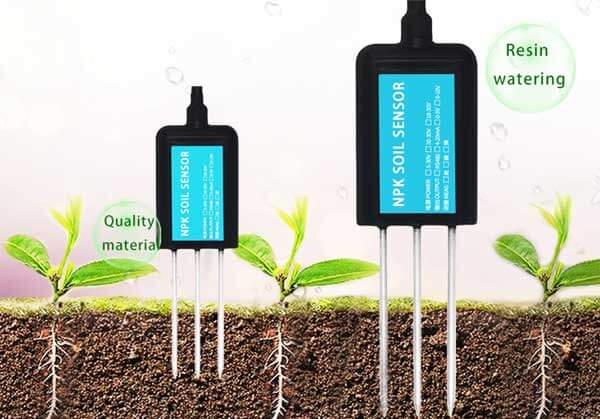Introduction In recent years, the agricultural industry has been undergoing a significant transformation driven by technological advancements. One such innovation that has gained traction is the use of soil sensors in sustainable farming practices. Soil sensors have the potential to revolutionize the way farmers manage their land, optimize resource usage, and ultimately improve crop yields. In this article, we will delve into the various applications of soil sensors, their impact on sustainable farming, and the challenges and opportunities associated with their adoption.

Understanding Soil Sensors
Soil sensors are electronic devices designed to measure and monitor various soil properties such as moisture content, temperature, nutrient levels, and pH. These sensors are typically deployed in the field at strategic locations to gather real-time data, which can then be used to make informed decisions regarding irrigation, fertilization, and other agronomic practices. The data collected by soil sensors provides farmers with valuable insights into the condition of their soil, enabling them to optimize inputs and minimize environmental impact.
Applications in Sustainable Farming
The integration of soil sensors into sustainable farming practices offers a multitude of benefits. One of the primary advantages is the ability to precisely manage irrigation, thereby conserving water resources and reducing the risk of overwatering. By continuously monitoring soil moisture levels, farmers can implement targeted irrigation strategies, ensuring that crops receive the optimal amount of water without wastage. This not only promotes water conservation but also contributes to the overall sustainability of agricultural operations.
Furthermore,
soil sensors play a crucial role in the efficient utilization of fertilizers and other agrochemicals. By accurately assessing nutrient levels in the soil, farmers can tailor their fertilization practices to match the specific requirements of their crops. This targeted approach minimizes nutrient runoff and leaching, preventing pollution of water bodies and safeguarding the surrounding ecosystem. Additionally, the precise application of fertilizers helps reduce input costs for farmers while enhancing the overall environmental sustainability of agricultural production.
Impact on Crop Yields and Quality
The implementation of soil sensors has the potential to significantly impact crop yields and quality. By ensuring that crops receive the right amount of water and nutrients at the right time, farmers can mitigate stress factors and optimize plant growth. This, in turn, can lead to improved yields and higher-quality produce. Moreover, the ability to monitor soil conditions in real time allows for early detection of potential issues such as nutrient deficiencies or water stress, enabling prompt intervention to mitigate any adverse effects on crop performance.
Challenges and Opportunities While soil sensors offer promising benefits for sustainable farming
their widespread adoption is not without challenges. One of the primary barriers to adoption is the initial investment required for purchasing and deploying soil sensor technology. Additionally, there may be technical challenges related to data interpretation and integration with existing farm management systems. Furthermore, ensuring the accuracy and reliability of sensor measurements across different soil types and conditions presents a significant challenge.
However, these challenges also present opportunities for innovation
and development within the agricultural technology sector. As the demand for sustainable farming practices continues to grow, there is a burgeoning market for advanced soil sensing solutions. This creates opportunities for technology providers to develop more affordable, user-friendly, and reliable soil sensor systems that cater to the diverse needs of farmers.
Moreover, the integration of soil sensor data with precision agriculture technologies
such as automated irrigation systems and variable rate application equipment, opens up new possibilities for optimizing resource use and enhancing farm productivity. By leveraging the power of data analytics and machine learning, farmers can harness the full potential of soil sensor data to make data-driven decisions that maximize efficiency and sustainability.

Conclusion In conclusion, soil sensors represent a valuable tool for advancing sustainable farming practices. Their ability to provide real-time insights into soil conditions empowers farmers to make informed decisions that optimize resource usage, minimize environmental impact, and improve crop yields. While challenges exist, the opportunities for innovation and integration with other agricultural technologies are vast. As the agricultural industry continues to embrace sustainability, soil sensors are poised to play a pivotal role in shaping the future of farming.
In summary, the potential of soil sensors in sustainable farming is vast, and their adoption holds the promise of a more efficient, environmentally friendly, and productive agricultural sector.
